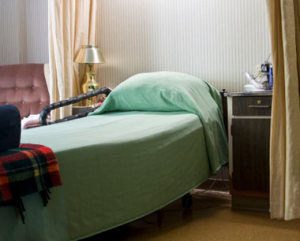One way in which nursing home residents in San Bernardino can suffer serious injuries during the summer months is dehydration, heat exhaustion, and other hyperthermia conditions. While many people assume that such injuries or conditions may be common during the particularly warm summer months in Southern California, especially when there is a heat wave, yet no residents at skilled nursing facilities in California should suffer from any of these heat-related conditions simply because the outdoor temperatures are setting records. To be sure, nursing homes in California must ensure that residents are safe and are not subject to extreme temperatures that can cause serious harm.
If a nursing home fails to provide cooler temperatures for residents during the summer months, can that nursing home be held accountable for injuries? Nursing homes certainly may be liable in certain situations where residents sustain hyperthermia-related injuries as a result of nursing home neglect.
Nursing Home Neglect and Hyperthermia
 Southern California Nursing Home Abuse Lawyer Blog
Southern California Nursing Home Abuse Lawyer Blog









